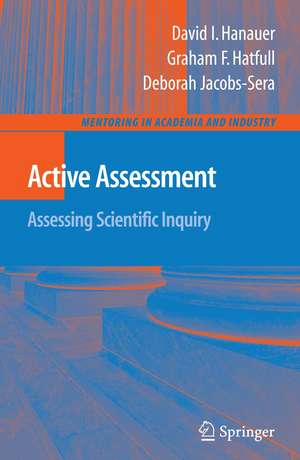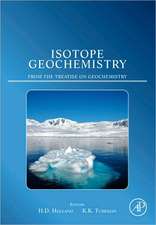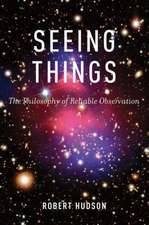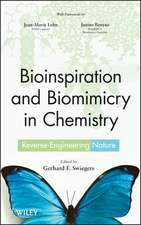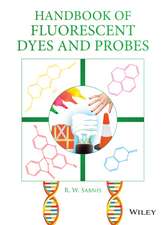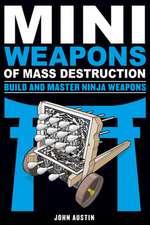Active Assessment: Assessing Scientific Inquiry: Mentoring in Academia and Industry, cartea 2
Autor David I. Hanauer, Graham F. Hatfull, Debbie Jacobs-Seraen Limba Engleză Paperback – 26 mar 2009
Preț: 382.18 lei
Nou
Puncte Express: 573
Preț estimativ în valută:
73.13€ • 76.55$ • 60.87£
73.13€ • 76.55$ • 60.87£
Carte tipărită la comandă
Livrare economică 31 martie-14 aprilie
Preluare comenzi: 021 569.72.76
Specificații
ISBN-13: 9780387896489
ISBN-10: 0387896481
Pagini: 133
Ilustrații: XII, 133 p. 19 illus., 11 illus. in color.
Dimensiuni: 155 x 235 x 9 mm
Greutate: 0.28 kg
Ediția:2009
Editura: Springer
Colecția Springer
Seria Mentoring in Academia and Industry
Locul publicării:New York, NY, United States
ISBN-10: 0387896481
Pagini: 133
Ilustrații: XII, 133 p. 19 illus., 11 illus. in color.
Dimensiuni: 155 x 235 x 9 mm
Greutate: 0.28 kg
Ediția:2009
Editura: Springer
Colecția Springer
Seria Mentoring in Academia and Industry
Locul publicării:New York, NY, United States
Public țintă
ResearchCuprins
Section One: The Theory and Practice of Active Assessment.- Active Assessment.- Conceptualizing Scientific Inquiry.- Contextualized Performance Based Assessment Tools.- A Framework for the Development of a Contextualized and Comprehensive Assessment Strategy for Undergraduate Scientific Inquiry.- Section Two: Assessing the Scientific Inquiry Process of the Isolation and Genomic Annotation of Novel Bacteriophage (The PHIRE Program): An Assessment Case Study.- A Description of the Phage Hunting Integrating Research and Education (PHIRE) Program.- The PHIRE Program Assessment Strategy.- PHIRE Assessment Tools.- A Researcher-Educators Experience of Active Assessment.
Textul de pe ultima copertă
Active Assessment describes an innovative approach to the assessment of scientific inquiry. The approach is termed active assessment and is based on the idea that scientist-educators can create authentic assessments that enhance engagement in the educational process and provide meaningful assessment data on student learning. This book deals with a specific educational context – the in-laboratory, scientific inquiry, educational program - and addresses ways to assess knowledge development and outcomes within this setting. The book is divided into two sections. In the first section a clear theoretical introduction to the conceptual and practical aspects of scientific inquiry assessment are presented. Active Assessment offers new insights into the understanding of both scientific inquiry and the assessment of scientific inquiry. The second section of the book provides a case study in which active assessment was used and developed. The specific program addressed is the PHIRE (Phage Hunting Integrating Research and Education) program situated at the University of Pittsburgh. This program is defined and the overall assessment strategy and specific assessment tools are described. This book provides a clear, practical and comprehensive understanding of issues involved in scientific inquiry assessment.
Dr. David Ian Hanauer is an educational researcher and the Assessment Coordinator in the PHIRE program and a Professor of English at the Graduate Program for Composition and TESOL at Indiana University of Pennsylvania
Dr. Graham F. Hatfull is the Prime Researcher and Program Director of the PHIRE program. He is the Eberly Family Professor of Biotechnology Professor of Biology, an HHMI Professor and currently the Chair of the Department of Biological Sciences at the University of Pittsburgh.
Ms. Deborah Jacobs-Sera is the Coordinator of PHIRE Program.
Dr. David Ian Hanauer is an educational researcher and the Assessment Coordinator in the PHIRE program and a Professor of English at the Graduate Program for Composition and TESOL at Indiana University of Pennsylvania
Dr. Graham F. Hatfull is the Prime Researcher and Program Director of the PHIRE program. He is the Eberly Family Professor of Biotechnology Professor of Biology, an HHMI Professor and currently the Chair of the Department of Biological Sciences at the University of Pittsburgh.
Ms. Deborah Jacobs-Sera is the Coordinator of PHIRE Program.
Caracteristici
Aim of the current book is to make the knowledge acquired in relation to the development of tools for the assessment of scientific inquiry available for researcher-educators in a wide range of educational settings that use scientific inquiry Based on a two year collaborative research project between Prof. David I. Hanauer and Prof. Graham F. Hatfull designed to produce an informed set of assessment tools for the scientific inquiry program situated in the Bacteriophage Institute of Pittsburgh Includes supplementary material: sn.pub/extras
